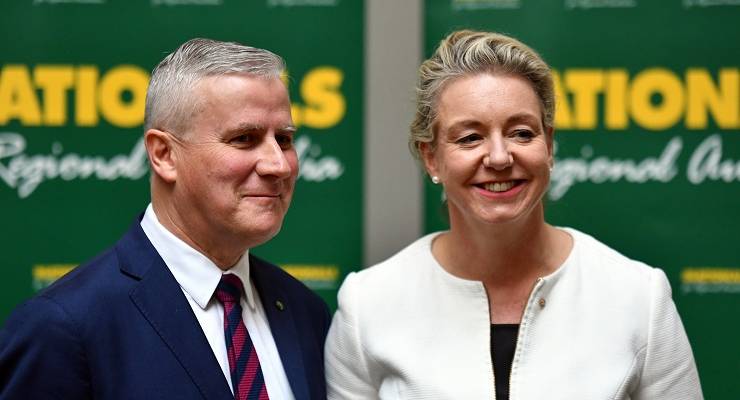
Yesterday Inq revealed gun sellers Beretta Australia had twice picked up the tab for Senator Bridget McKenzie’s “recreation” trips, though the Senator failed to declare Beretta’s generosity for years. So how did McKenzie continue to flourish? And what does it say about our system of government?
Exhibit B: it’s what we do
Senator McKenzie is far from alone when it comes to being open and honest with the voting public about the generosity of special interest groups.
The most senior members of the National Party have displayed a loose understanding of what constitutes a bad look. As Inq reported last month, the current leader of the Nationals, Michael McCormack, donned the official tie of the Pharmacy Guild of Australia and posed for photographs with its lobbyists at the organisation’s annual parliamentary ball last year.
Another former Nationals leader, Barnaby Joyce, accepted a $40,000 award from mining and agriculture magnate Gina Rinehart in 2017 before bad publicity forced him to return it.
And this month it emerged Joyce’s partner, Vikki Campion, had been hired on the taxpayer’s dime as a media adviser for Joyce’s fellow Nationals MP and political supporter, Llew O’Brien, who occupies the media-shy role of deputy speaker of the House of Representatives.
In cases of public funds being used for private purposes, former Nationals front bencher Andrew Broad used taxpayer money for the domestic leg of his flight overseas where he secretly met up with his “sugar baby” companion in Hong Kong. And earlier this year LNP member George Christensen repaid over $2000 in taxpayer funds which a tribunal found he had wrongly used to fund his travel to the Philippines to see his fiance.
The lesson would appear to be that the only real crime is getting caught.
Exhibit C: previous transgressions? So?
Before the sports rorts affair became public in January this year, McKenzie was part of a ministerial panel for a separate grants program, the Regional Jobs and Investments Scheme, which was investigated by the Australian National Audit Office (ANAO) and found wanting. The ANAO’s report late last year criticised the way the ministerial panel — which also included McCormack — doled out $200 million in grants to regional businesses.
The ANAO found that the panel overturned close to 30% of recommendations from departmental bureaucrats and replaced them with other projects, though the panel failed to record any re-scoring of applications — a failure which “adversely affected accountability” because there was no “clear line of sight between the departmental assessment results, the subsequent adjustments by the Ministerial Panel and the funding decisions.”








How many “go into politics to make a difference” – to their own circumstances.
…. Including for a life post politics?
“Maintain the rage…”